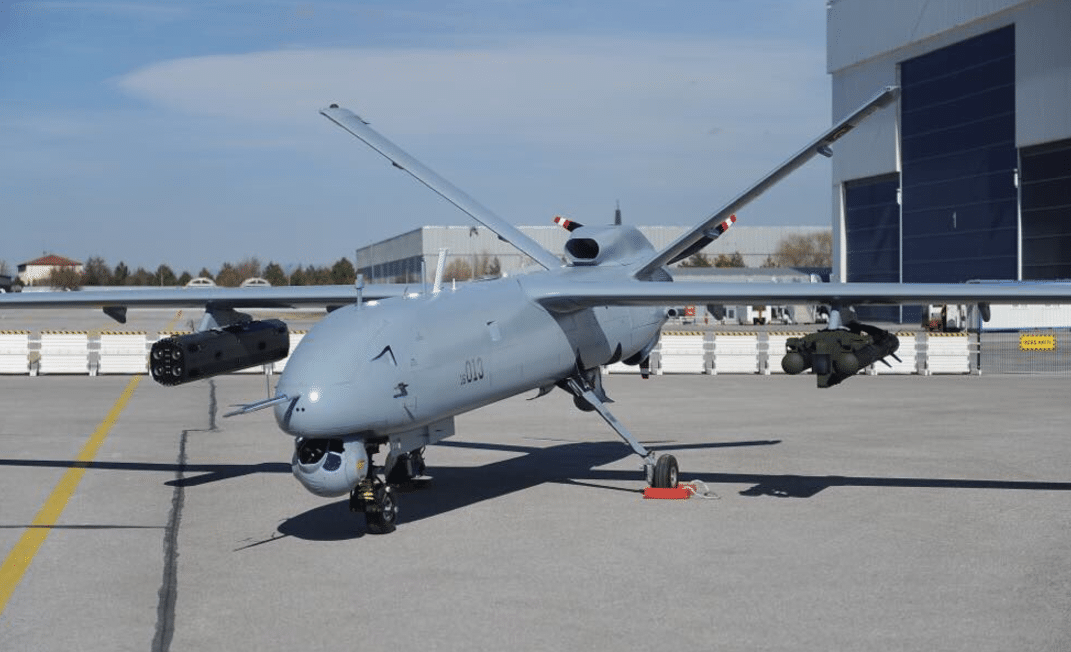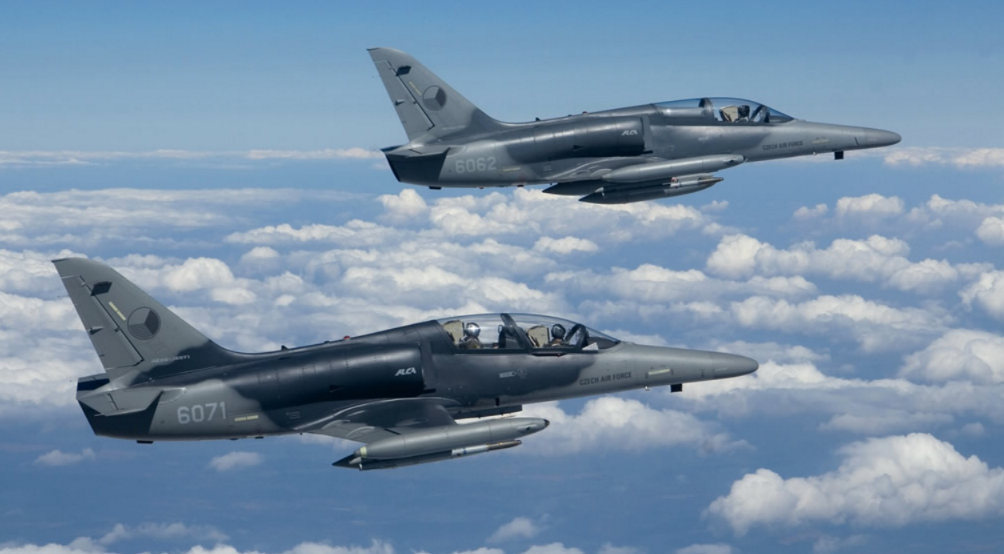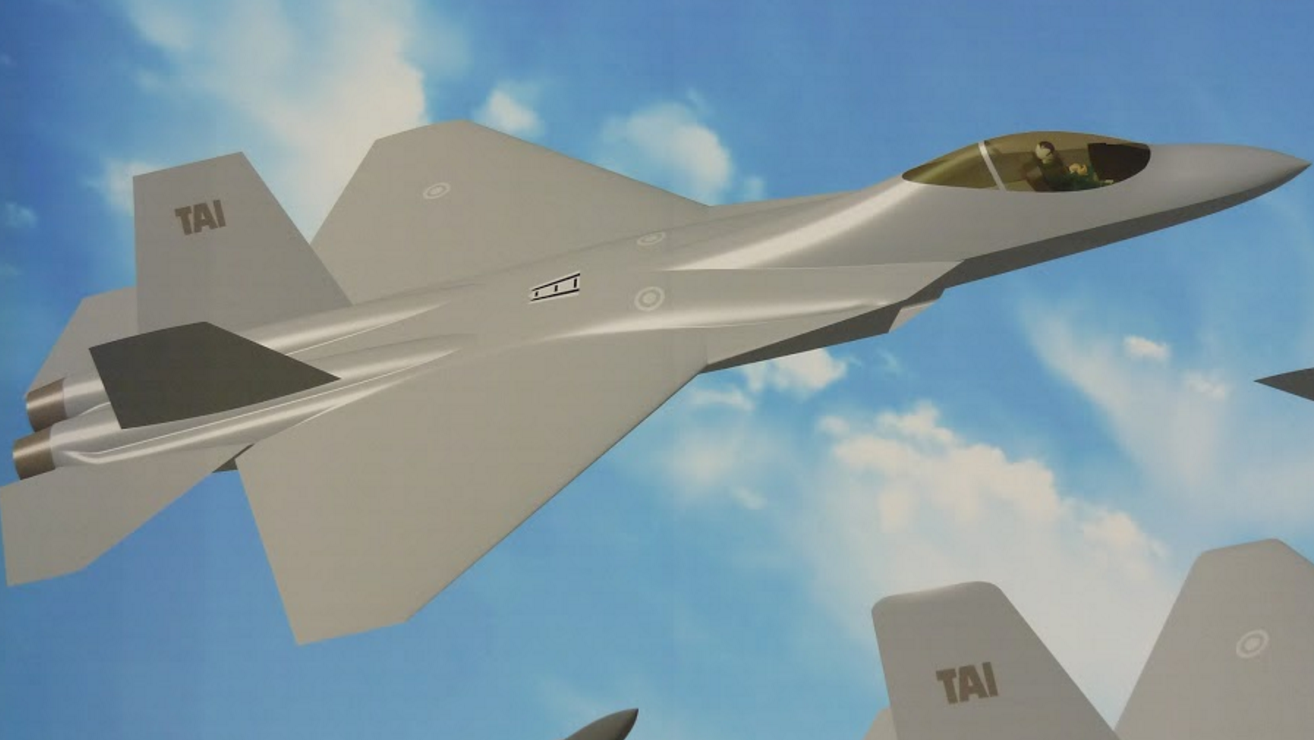2465Views 12Comments

Saudi Arabia reportedly in talks for TAI Anka drones
Saudi Arabia is reportedly in talks with Turkish Aerospace Industries (TAI) for six Anka medium-altitude, long-endurance (MALE) unmanned aerial vehicles (UAV).
Speaking to Defense News, TAI marketing and communications manager Görkem Bilgi revealed that Saudi Arabia had been engaged with TAI for the Anka UAV system since 2013, but a deal has yet to be signed.
Reportedly, the two sides are still in the process of settling the issue of cost – now a factor in light of lower oil prices – and other unspecified issues.
Having first flown in 2010, the TAI Anka is a MALE UAV platform capable of intelligence, surveillance and reconnaissance (ISR) and precision-strike missions. TAI successfully weaponized the Anka in April 2017 by configuring and test-firing the Roketsan MAM-L.
Notes & Comments:
Though it is fulfilling an Anka delivery contract to the Turkish Armed Forces (for 10 Anka-S), TAI has been seeking to export the Anka, especially to Middle East and Southeast Asian markets. Riyadh’s apparent interest in the Anka is intriguing considering that it is already procuring comparable Chinese UAVs.
In March, the King Abdulaziz City for Science and Technology (KACST) had signed an agreement with China Aerospace Science Technology Corporation (CASC) to produce CASC’s drones in Saudi Arabia. In February, Taqnia Aeronautics Company signed a similar deal with China Aerospace Long-March International (ALIT).
In May, KACST revealed its own MALE UAV design in the Saqr 1. According to the Saudi Press Agency, the Saqr 1 is equipped with a Ka-band satellite communication (SATCOM) terminal, enabling the Saqr 1 to fly a range of up to 2,500 km. It has an ‘average altitude’ of 20,000 ft and endurance of 24 hours.
Moreover, the Saqr 1 also has a payload of 250 kg for electro-optical and infrared (EO/IR) equipment and guided air-to-surface munitions, including the AR-1 air-to-ground missile (AGM) and FT-9 bomb.
The KACST and Taqnia programs indicate that Saudi Arabia is well into the process of securing MALE UAVs, hence it is unclear why it would need to engage with TAI for the Anka.



12 Comments
by Mike
I cant imagine the saudis produced a UAV on their own. It seems pretty much impossible to develop a UAV without any industrial groundbase and R&D. No offence, but an advanced armed UAV is no child’s play it takes quite a long time. For example Germany and other european countries tried, but failed 2 times, even russia had some serious problems at the beginning. Saudi universities might have a good reputatuon (due to prestigous foreign professors) but their students are not known for their hard work… Currently there are only 6 countries which can produce armed UAV’s. And I don’t think that Saudi Arabia could ever climb that ladder so quick, if it iant produced with chinese help. But I agree it seems unnecessary to procure the anka, if they have already some own solutions.
by Bilal Khan
That as it may, the Saudis still have access to drones from a country that has made and operated them longer than Turkey (China). So it’s curious that Riyadh would still be engaging with Turkey for the Anka when they have access to directly comparable CH or Wing Loong drones, assembled or otherwise. I would have pegged KSA for signing onto the CH-5 and/or Cloud Shadow by now tbh.
by T-123456
Didnt the Saudis make a deal to licence produce UAV’s with China,so why the interest in the ANKA?
by Joseph
Maybe it has something to do with data exchange protocol such as NATO standard link 16 and Saudis need some drones capable of being integrated with NATO equipment.
Turkey being a NATO member country does come with certain advantages.
by Thoughtfortheday
Apparently good news for Turkey on the face of it but they need to be careful. In early May 2017 the Saudis led Turkey to believe that they were about to place an order for a massive arms deal. By June 2017 the Muhammad bin Salman had blockaded Qatar and the deal with Turkey never materialised. Turkey needs to be careful that it is not being duped.
by mh1975
it may be a token gesture to turkey after they cancelled the milgem order
by T-123456
They have the US option for that.
by Joseph
Apparently US is not selling Saudi Arabia, or any middle eastern countries for that matter, drones. That is one of the reasons why Chinese drones are so popular.
by TZK
Saudis can afford to buy UAV’s both from Turkey and PRC. The Gulf states have been drastically diversifying their equipment recently. I wonder if it is for strategic requirements or diplomacy.
by Türker Demircan
20 billion $…Turkey does not have such a big product scope…Saudis expected to buy 4-5 MILGEM which can be max 1,5-2,0 billion $ (they agreed to pay US about 6 to 11 billion $ for similar supply, Locheed Martin Freedom)…They always have money for US
by Mike
I read it in an article(foreign website I cant remenber, I think it was german-english idk) 2 Yeats ago. Also there were rumors about a massive arms deal in the turkish media, Im not talking about the Milgem sale. Saudi Arabia expressed the intention to buy arms around 20billion from turkey including the Altay tank and several others. It was at the time, when Saudi Arabia and turkey were really close to each other, since they had the same geopolictical agenda and were supporting the same mujahid groups in syria. I cant find the source any more, but maybe Bilal or someone else knows more about it.
by Türker Demircan
Altay tank will enter service earliest by 2020 (if designer Otokar is selected, otherwise possibly 2021) …I do not have any idea about the website you say but in any case talking a package of 20 billion $ could be possible only for a few Exporters (US, Russia and may be France) and a new generation fighter jet package (100+) shall be included in this…Turkey’s 2016 total defence and aerospace export value is 1,7 billion only and T-FX will make its maiden flight by 2023 (to be in service by 2030)